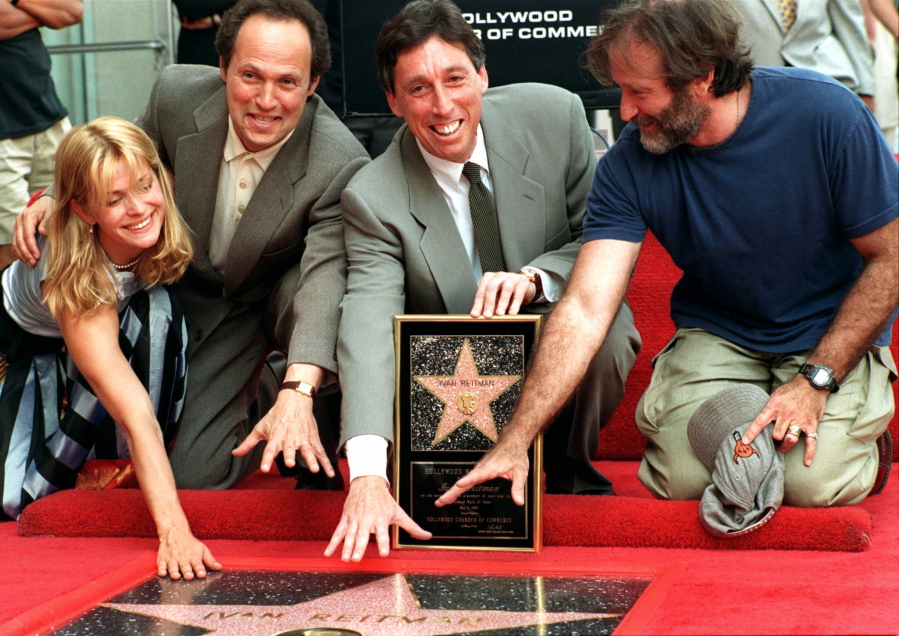A few weeks ago, during one of those late nights when YouTube becomes a rabbit hole for the sleep-deprived, I found myself seeking out random clips from, of all things, “Kindergarten Cop.” That 1990 action-comedy directed by Ivan Reitman, who died this weekend at 75, is not what I’d call a personal favorite, though I couldn’t deny (or, for that matter, explain) its oddly persistent hold on my memory.
If recollection serves, I was only 8 when I first saw Schwarzenegger yell “SHUUUUUT UUUUUPPP!!!” at a class of unruly tots, an inauspicious start to possibly the least convincing undercover investigation in the history of the LAPD. Now, idly revisiting that and other scenes three decades later, I had questions: Was the movie as weird, incongruous and harrowing as I’d remembered? If they were making this now, how would they rework that startlingly intense shootout in a school lavatory? And of course: You’re not so tough without your car, are ya?
That last punchline still works beautifully, even if the rest of the movie works only in fits and starts. Like Reitman’s other hit efforts to mine the softer side of Austria’s most famously hard body — including “Twins” (1988), in which Schwarzenegger and Danny DeVito played separated-at-birth siblings, and “Junior” (1994), which reteamed both actors as the masterminds behind the world’s first human male pregnancy — “Kindergarten Cop” is something of a triumph of high concept over uneven execution. Or is it?
At their most memorable, Reitman’s comedies all but erase the line between goofy slapdashery and polished craft. To look back at his movies — many of them more amiable than side-splitting — is to rifle through an assortment of hits and misses, a catalog of comic imperfection. That’s no bad thing, really. Imperfection sometimes ages better, or at least more endearingly, than perfection.



